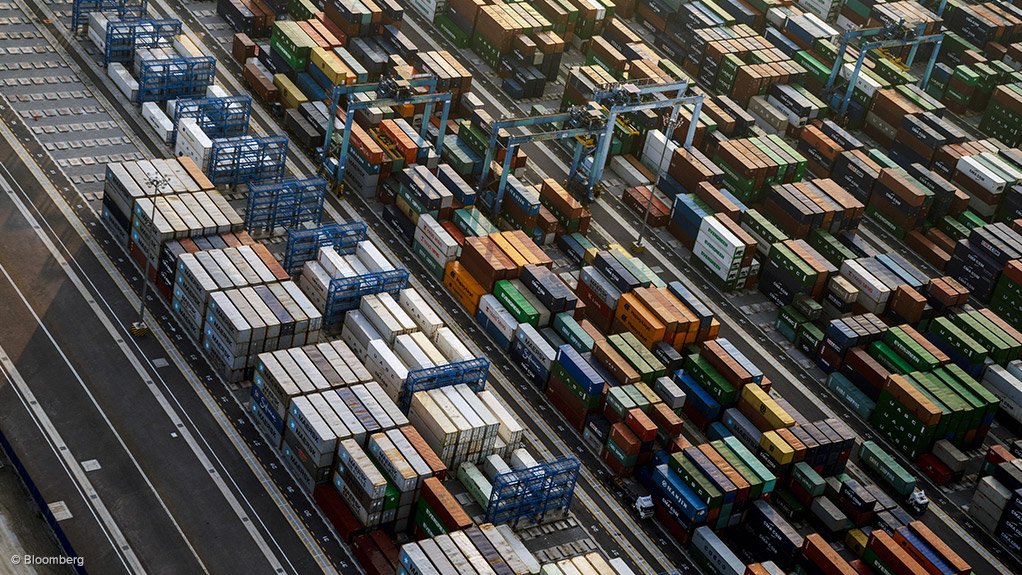South Africa’s largest sources of foreign investment, including the US, the UK and Germany, are entering 2025 with mixed fortunes.
With great uncertainty about the US economy in 2025, the economic outlook for Group of Seven (G7) developed economies in 2025 shows modest growth across key territories.
In the Eurozone, real GDP growth is forecast, by PwC, at 1.2% next year. Germany, for example, currently faces difficulties from low consumer confidence and decreased demand for exports to China. The UK, in turn, is dealing with persistent inflation, high interest rates and continued post-Brexit adjustments.
In France, the manufacturing sector, which is a key employer, faces challenges from global supply chain disruptions and frequent labour strikes that reduce productivity.
Further, PwC US’s Pulse Survey for October 2024 found that half of the US executives polled expect to make more foreign investments under the new administration led by President-elect Donald Trump.
About 50% of the survey respondents indicated that their company would increase foreign investments under a Trump presidency, while 9% indicated they would decrease offshore investment; a net reading of 41%.
This is good news for South Africa because the US is its fourth-largest source of investment after the UK, Netherlands and Belgium, PwC says.
However, on a negative note for South African trade prospects, Trump has suggested imposing a 10% to 20% universal tariff on imports, which is aimed at creating a more competitive pricing environment for US-based suppliers of these commodities.
Metals and ores, including platinum, aluminium and ferroalloys, sourced from countries such as South Africa and used as manufacturing inputs in the US, are among the key risk categories for increased import tariffs, the company points out.
Additionally, China, which is South Africa’s largest trading partner, is expected to see slower economic growth next year, declining to 4.5% in 2025 from 4.8% in 2024, owing to ongoing structural reforms, weak consumer spending and overcapacity challenges in the property market.
Structural reforms aim to reduce debt reliance and stabilise the real estate market. However, these adjustments are expected to negatively affect or reduce short-term economic growth.
While high-technology manufacturing continues to perform well, consumer spending and industrial output are weakening heading into 2025, PwC notes.
For South African companies, opportunities in Asia are tied to the hunger for commodities to feed, clothe and transport a combined 2.9-billion people in India and China. Both economies also have a ferocious appetite for commodities that are also used in their massive manufacturing industries, including minerals, metals and agricultural products.
Under the banner of an expanded BRICS grouping, China and India remain the largest prizes for companies in other emerging markets seeking to expand their current footprint.
South Africa is a trade-dependent economy, with the value of its goods and services trade equal to 66% of GDP in 2023, which is slightly higher than a global average of 63%.
“South Africa is a small and trade-dependent economy exposed to global geopolitical forces beyond its control,” says PwC South Africa Macro Analysis lead economist Christie Viljoen.
Globally, international trade has historically been with close neighbours, but globalisation since the 1980s reduced the importance of distance.
Global trade entered a new phase in the late-2010s called 'slowbalisation', which is a combination of onshoring or nearshoring certain sectors of the economy, and friend-shoring some other sectors by gradually aligning supply chains to countries sharing similar economic, political and institutional systems.
This kind of trade realignment could be impactful on local economic activity, he says.
By PwC's estimates, the trade-weighted average distance between South Africa and its top 20 trading partners declined from 7 093 km in 2022 to 6 874 km in 2023, which is the lowest trade distance since 2012.
The smaller reading in 2023 was owing to Mozambique jumping from being the twelfth-largest trading partner in 2022 to fourth-largest in 2023.
South Africa exported 66% more chromium ore by value to Mozambique in 2023 for shipping to China and other Asian buyers via the Port of Maputo and imported 17% more electricity from the Cahora Bassa hydroelectric power plant to aid in reducing loadshedding.
South Africa’s increased dependency on Mozambique to supply port and energy services speaks to the trend of nearshoring, such as the outsourcing of services to a nearby country. Nearshoring is increasing, as international trade moves closer to home, Viljoen notes.
The mixed economic outlook for investor countries requires South African companies to work to attract or stimulate foreign investment interest that could be less forthcoming than before.
Potential investors want South African companies to show a track record of commercial sustainability across the systemic crises the country has experienced, such as loadshedding and transport issues, that they are well positioned to maintain this performance into the future, and that they have capabilities that can be exported to other territories.
EMAIL THIS ARTICLE SAVE THIS ARTICLE ARTICLE ENQUIRY FEEDBACK
To subscribe email subscriptions@creamermedia.co.za or click here
To advertise email advertising@creamermedia.co.za or click here











